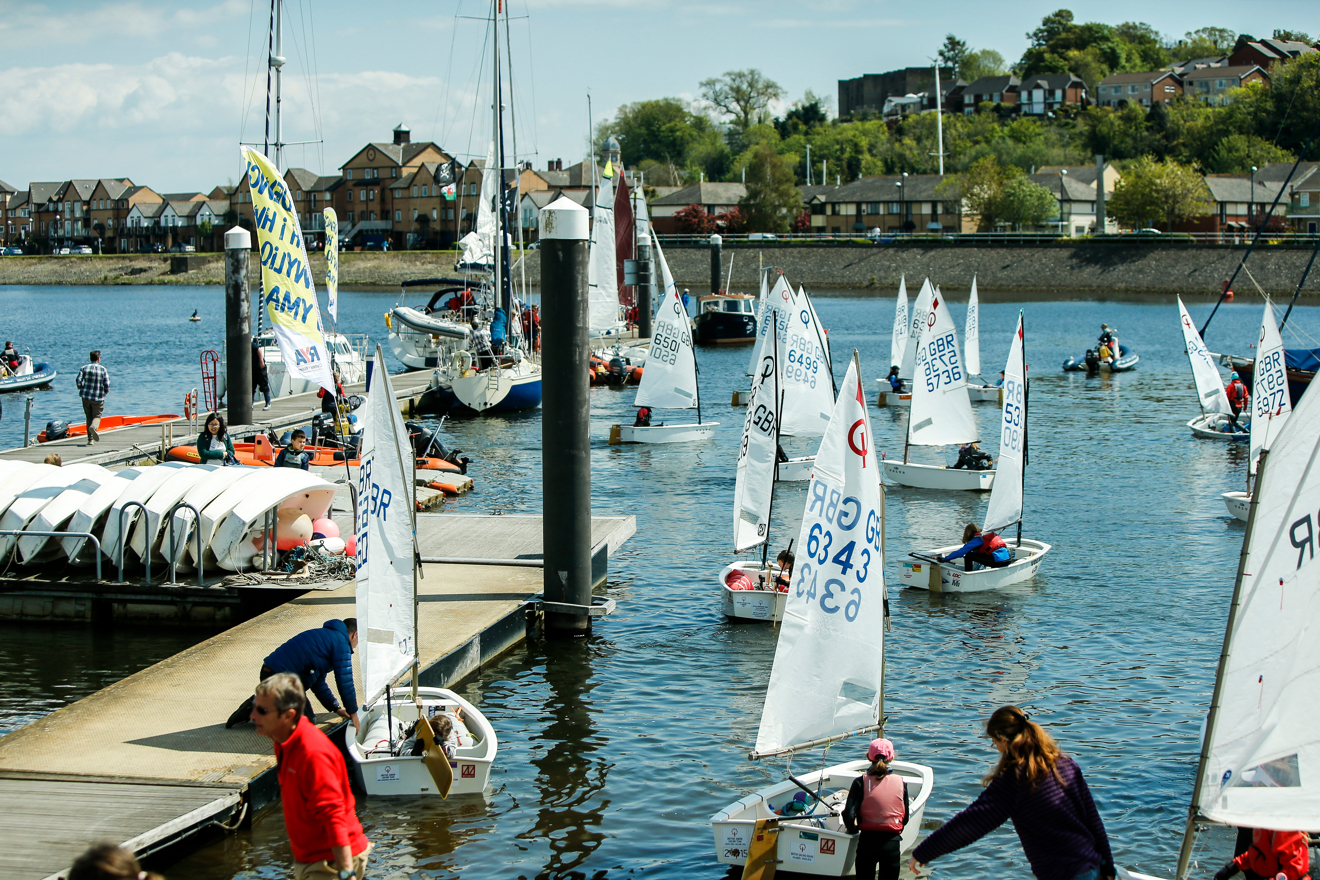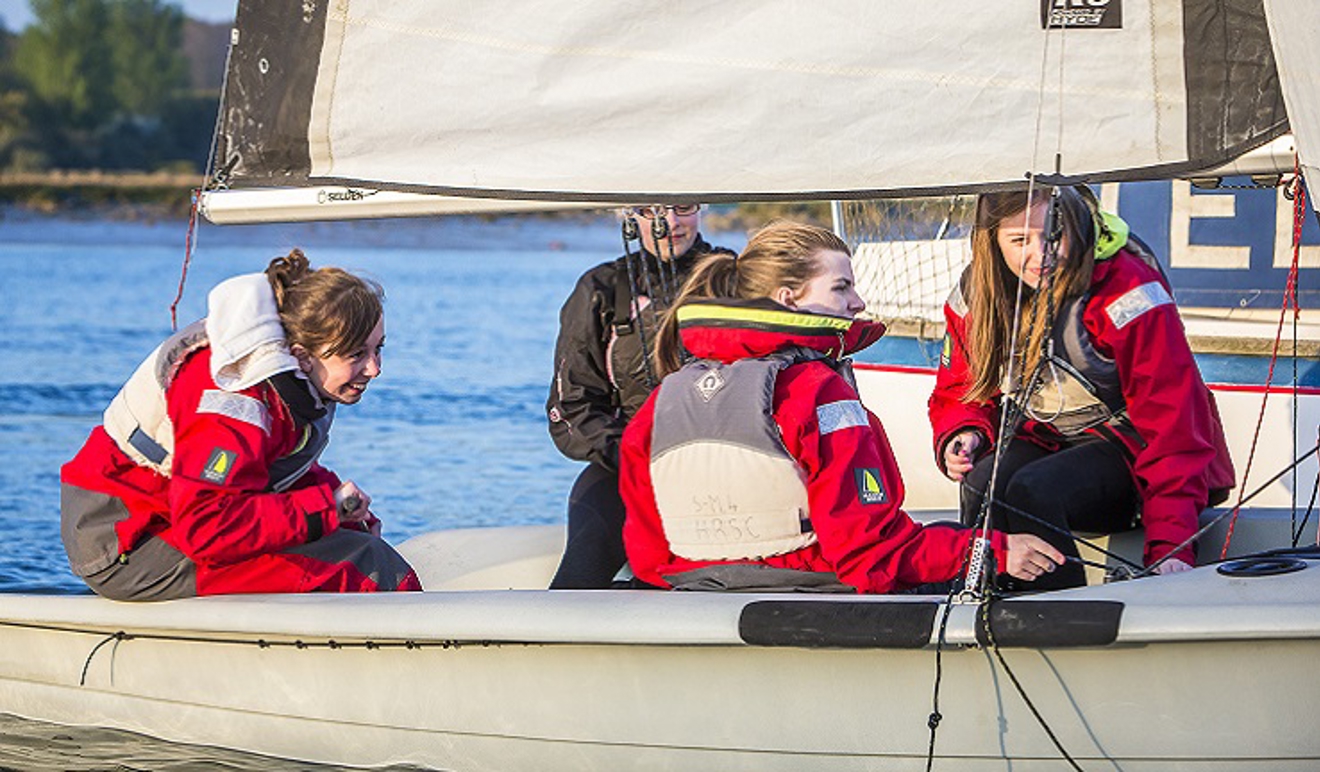"Safeguarding is part of the culture of our organisation."
A Welfare Officer is a crucial part of any watersports club, acting as a voice for safeguarding.

A Welfare Officer is a crucial part of any watersports club, acting as a voice for safeguarding. They'll work with their club's committee to make sure that regular and one-off events are run safely and that any concerns are managed in the most appropriate way. To learn what skills are needed, what RYA support is available and how it could help your club, three volunteers share their experiences:
Susie Tye is the Welfare Officer for Somerset Youth and Community Sailing Association (SYCSA), an RYA training centre based at Durleigh Sailing Club in Bridgwater, Somerset. She has the role at both SYCSA and the club.
Kären Harden is Safeguarding Officer at the Burnham Sailing Club (BSC), and for the annual Burnham Week Regatta.
Alice Thorogood volunteers for the UK Cadet Class Association (UKNCCA) and is based at Waldringfield.
How did you get the role, and had you done any safeguarding before?
ST: we've been involved with SYCSA as a family for a few years. I volunteered to take on the job when the previous Welfare Officer retired. I'm an assistant Beaver Scout leader, so already have safeguarding training and experience.
KH: My family have been members of the BSC since our children began sailing. My husband joined the committee, and it was then that I was approached to take on the role of Safeguarding Officer. I was a head teacher and also the school's safeguarding person, so had received a great deal of training in this area and the club felt I'd have the expertise to take on the role.
AT: As with many clubs and classes, the UKNCCA relies completely on volunteers and I was encouraged onto the committee about two years ago, as it was decided that having two Welfare Officers would be great for spreading the workload and ensuring that sailors had a choice of who to approach. I haven't had much previous experience in the role — I've been a school governor and knew about DBS checking and the need for a welfare policy that was a working document rather than something created to tick a box. Thankfully, the RYA offers a great training programme and has been on hand to answer questions and act as a sounding board.
What are the benefits of having a Welfare Officer?
ST: It means young people (and their parents) who learn to sail at SYCSA know that there's a dedicated person they can talk to if they need to. Adult volunteers also have a point of contact should they have issues with other volunteers, or if they need to report incidents that occur with students. Having someone who's had safeguarding training and knows the procedures to follow means that incidents can be dealt with swiftly and calmly.
KH: At first, some long-standing members of the committee were unsure why such a role was necessary and felt it was the parents' responsibility to keep their child safe. With the support of the RYA Safeguarding team, I could show that it's a vital role and a benefit to the club and its members. Raising awareness was, and is, key to it working effectively.
AT: The welfare, safety and wellbeing of our sailors has always been at the forefront of the UKNCCA. Having dedicated officers means that safeguarding is at the centre of every event we organise. This means it's a pillar of the UKNCCA rather than something tacked on at the end — it's part of the culture of the organisation.

How have you used the RYA's resources?
ST: Mainly regarding DBS checks. The transition a few years ago to an online DBS system seemed quite complicated at first, but the RYA Safeguarding Officer talked me through the steps and it's now a very simple process to follow.
KH: I've attended webinars and shared the resources available from the RYA. There's a policy document that's perfect for tailoring to your club's specific needs.
AT: The RYA Safeguarding team are a really approachable group, clearly passionate about their role. Their 'Safe and Fun' course was perfect for giving me confidence in my own role.
How do you think you've made an impact?
ST: I like to think I've had a positive effect as I'm approachable. Some of our young sailors already know me from scouting, or because they're friends of my children, which means I'm a familiar and hopefully reassuring presence.
KH: There weren't any resources in place when I started, so I introduced various documents, including a comprehensive policy, using the RYA guidance: self-declaration forms, an anti-bullying policy and a code of conduct, along with 'Safe and Fun' posters and guidance for trainers. I've ensured that the committee regularly review policies and practice.
AT: I came on board with safeguarding just as the committee was conducting a major overhaul of the policy and I've been able to help a lot with the process — my main influence has been ensuring we have a specific policy on who gets DBS checked.
Being a Safeguarding Officer at the club makes me feel like a useful part of what is a truly great group of sailors, their parents, carers and a dedicated group of volunteers. I would highly recommend it!
For more information about the role of the Welfare Officer, visit the RYA Welfare Officer page.
